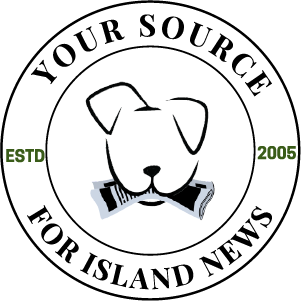1 of 2

Lowcountry Marine Mammal Network
Seabrook Island residents volunteer with the Lowcountry Marine Mammal Network.
2 of 2

S Nelson
A dolphin strand feeding near the shoreline on Kiawah Island.
There are so many special reasons to visit or live on Seabrook Island, but if you asked a current resident or recent visitor what they love the most, you’ll likely hear them speak of the unique wildlife and pristine environment.
Coexisting with nature is certainly a popular draw for one of South Carolina’s most unique barrier island communities.
Luckily, Seabrook Island is working to protect the marine ecosystems and animals that inhabit the area by supporting initiatives like the Lowcountry Marine Mammal Network (LMMN). LMMN is a nonprofit organization that focuses on protecting marine mammals, including dolphins, whales and seals, in South Carolina. Their goal is to increase awareness about local marine mammals and to increase awareness about their behavior. LMMN also hopes to decrease harassment of dolphins by boaters and beachgoers.
Seabrook Island’s Town Council just voted unanimously to continue the relationship they have had with LMMN for the past several years for at least another year.
LMMN will have at least one team member stationed near Captain Sam’s Inlet for four hours a day, four days a week, at low tide from April 1 to Dec. 31. This includes holiday weekends, in the offseason and every day of the week during the peak season, for the purpose of educating the community about dolphins and the practice of strand feeding.
LMMN will provide educational outreach there where the dolphins are known to strand feed.
Strand feeding is a feeding behavior that dolphins engage in which allows them to corral fish near the sandy shores and then create a large wave to push the fish and themselves onto the shore to eat the fish before returning to the water. Dolphins learn this behavior from their mother.
LMMN has found that it is not a common behavior and that most dolphins do not engage in strand feeding in other parts of the world. Giving the dolphins their space to strand feed is important so as not to disrupt this specialized hunting strategy.
A primary focus for LMMN is to ensure that dolphins are not harassed by boaters or other people on the shoreline while they are in the water or while strand feeding. The fear is that the dolphins will abandon the strand feeding practice if they are bothered by humans.
“Strand feeding is one of the most exciting dolphin behaviors worldwide and we have a profound responsibility to protect it,” LMMN Executive Director Lauren Rust said. “We are incredibly thankful to the Town of Seabrook Island for their continued support of our education program and for making a statement that a natural resource as special as this is worth protecting.”
The other services that LMMN offers are dolphin monitoring, education programs, stranding response, strand feeding education programs, dolphin camps and other outreach initiatives.
Along with their four-person staff, LMMN also utilizes a host of volunteers to help them educate the public on dolphin behaviors and protecting their ecosystems. LMMN team members report violators to code enforcement.
Both Kiawah and Seabrook islands support LMMN through grants. Seabrook pays for their services through the state accommodations tax.
For more information on LMMN, visit lowcountrymarinemammalnetwork.org.


